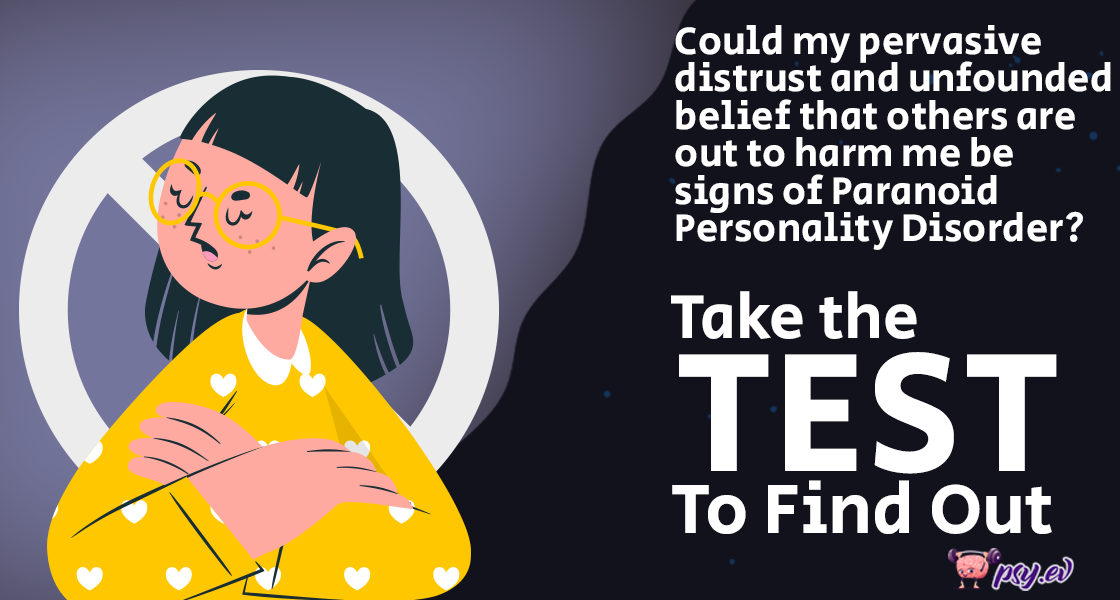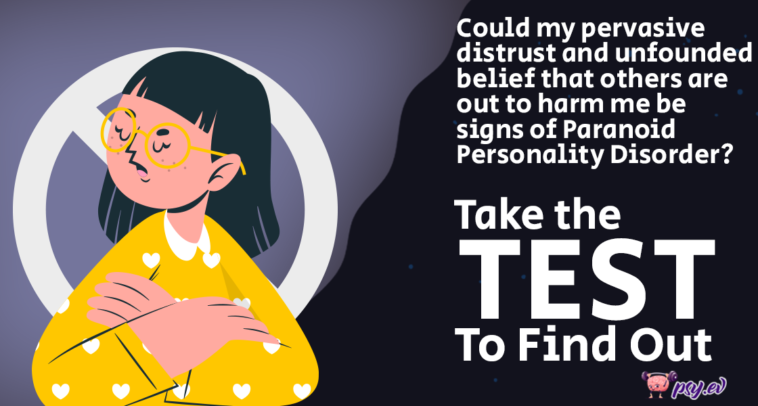This Paranoid Personality Disorder screening test can help determine whether you might have the symptoms of Paranoid Personality Disorder (PPD). Use the test results to decide if you need to see a doctor or other mental health professional to further discuss diagnosis and treatment of Paranoid Personality Disorder.
Instructions: Please, read the statements listed below. Answer to each item that you believe accurately describes your condition
I suspects that others exploit me, plan to harm me or deceive me
I have doubts about loyalty or trustworthiness of friends or associates
I entrust my close ones with important information
I feel that other people remarks have demeaning or threatening meanings directed to me
I can forgive a person if he insults me or slighting attitude towards me
I feel that others attack my character or reputation
When I face attacks on my character or reputation I react very angrily.
I’m concerned about the fidelity of my sexual partner(spouse).
The Paranoid Personality Disorder Test is based on the diagnostic criteria of PPD.
According DSM, these diagnostic criteria include: suspects, without sufficient basis, that others are exploiting, harming, or deceiving him or her; preoccupation with unjustified doubts about the loyalty of friends; reluctance to confide in others; reading hidden demeaning or threatening meanings in benign word or actions of other people; persistent bearing of grudges; unjustified perception of attacks on his or her reputation; without justification, recurrent and unjustified suspicions about fidelity of spouse or sexual partner.
Paranoid personality is distinguished by paranoia and a pervading, enduring suspiciousness and generalized mistrust of other people. Individuals with PPD are keen observers. They tend to vigilantly scan the milieu for evidence that justifies their fears and biases. They are hypersensitive and could be easily insulted.
This test covers all the main symptoms of paranoid personality disorder. However, as any other self-reported test, it does not replace proper professional assessment. If your score indicates that, you have a probability of having a paranoid personality disorder, but proper mental health assessment does not find any, it means that the test is mistaken in your case and provided a false-positive result.


